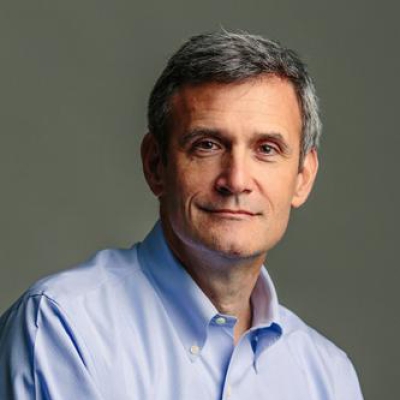Does any field have a weaker grasp of its own history than education?
Last week, I hosted a discussion at the American Enterprise Institute on “Bringing High Expectations Back to Education.” The event, which can be viewed on YouTube, was kicked off by a presentation by Steven Wilson, an ed reform fixture who has a book coming out on the subject. Listening to his talk, I found myself feeling frustrated, even infuriated: Efforts to raise rigor and expectations in education have consistently faced strident opposition.
Wilson cited a litany of disheartening examples stretching back more than a century of education experts making a virtue of holding children to low expectations for their putative benefit: When the “Committee of Ten” appointed by the National Education Association in 1892 proposed a liberal arts education for all American high school students, for example, G. Stanley Hall, a prominent psychologist and educator rejected the idea, claiming most students were part of a “great army of incapables.” Half a century later, the “life adjustment” education movement of the 1940s, asserted that the majority of high school students were not college-bound and should therefore focus on practical skills like health and hygiene, homemaking, or vocational training, rather than rigorous academics.
The occasion for Wilson’s talk and subsequent panel discussion, which was co-hosted by Fordham and the Progressive Policy Institute, was the latest turn of this depressing wheel. In the early years of our own century, a bracing movement arose among a generation of charter school founders and leaders who insisted low student achievement, particularly for minority children, must not be abided, and placed the onus on themselves and others to do whatever it takes to help all children succeed academically. The schools they founded and led were informally dubbed “No Excuses“ schools, and it meant exactly that: External factors like poverty, family background, or community challenges were no excuse for poor student achievement. Children do not fail. Adults fail children.
Because we have failed to learn the lessons of education’s history, there has been a fierce and counterproductive backlash to no excuses schools, stemming from the idea that student discipline and orderly classrooms are culturally insensitive, particularly when imposed on students of color; they perpetuate a “school-to-prison pipeline” rather than a path to college and lives of upward mobility. This critique drove the rise of social justice education, with its focus on reducing racial harm while functionally neglecting academic instruction and enshrining low expectations. Its proponents may insist there is no conflict between student achievement and “antiracist” pedagogy, but Wilson’s presentation, based on his forthcoming book, The Lost Decade: Returning to the Fight for Better Schools in America, tells a different and devastating story. It’s worth watching in full and with sober reflection.
Wilson is a walking symbol of the backlash. He was dismissed in 2020 from the Ascend charter school network, which he founded and led to remarkable success, after writing a blog post that dared to critique the rise of social justice and antiracist education and its anti-intellectual notions, including how “reverence for the written word” (to cite but one example) is somehow indicative of “white supremacy culture.” His firing, and the silencing of similar dissenting voices in the education sector, underscores the fear of challenging these ideas that has marked the last several years, even when it became clear that we are demonstrably failing the very children we purport to champion.
As Wilson’s fellow panelists at the AEI event noted, the insidiousness of this ideology lies in its control of language and its ability to co-opt terms like “no excuses.” This phrase, coined as a cri de couer to hold educators accountable for student success, has been twisted to connote a misappropriation of authority on the part of adults. Doug Lemov, author of Teach Like a Champion and our foremost advocate for effective teaching practices, observed, “To care about someone is to have high expectations for them.” Yet, this fundamental truth has been lost in the fog of therapeutic interventions and misplaced racial guilt. Stephanie Saroki de Garcia, cofounder of Seton Education Partners, which operates charter and Catholic schools in low-income communities in three states, emphasized that parents in her network’s schools overwhelmingly support rigorous academic instruction over “antiracist” education. She cited a colleague who immigrated from Panama and raised her children in the Bronx, who frequently states, “Literacy is justice. Numeracy is justice.” Just so.
One hopes that Wilson’s forthcoming book will serve as a much-needed wake-up call. As he powerfully argued, social justice education “is not the long-awaited correction to America’s procession of exclusionary, anti-intellectual school reforms. It is its apotheosis. It will leave the students it aims to help less educated, more excluded, and more vulnerable.” There should be, by now, recognition, even among those who have embraced the social justice agenda, that it’s not working. The post-pandemic reality of declining test scores and escalating behavioral problems in once high-flying schools underscores the urgency of returning to what works.
I was not alone in my frustration. Lemov described a high-performing school that he has visited many times over the years—the kind of school “that parents could send their kids and know they would be safe, their learning time respected, and where their education would be taken very seriously.” Sitting three feet from Doug onstage, I could see his eyes filling with tears as he described the “utter chaos” he witnessed on his most recent visit last month. The head of the school told Lemov they weren’t sure adults should be telling young people what to do. “Have we gotten to a place where we no longer believe that it is an adult’s role to shape a student’s experience in life?” he asked. His hosts insisted they were “busy dismantling systems of oppression” in the school.
“My take was, ‘Whatever systems of oppression you think you’re dismantling, they’re a lot less oppressive than the chaos that’s going on in the school right now,” Lemov concluded. “And you should reassemble them as quickly as you can.’”




